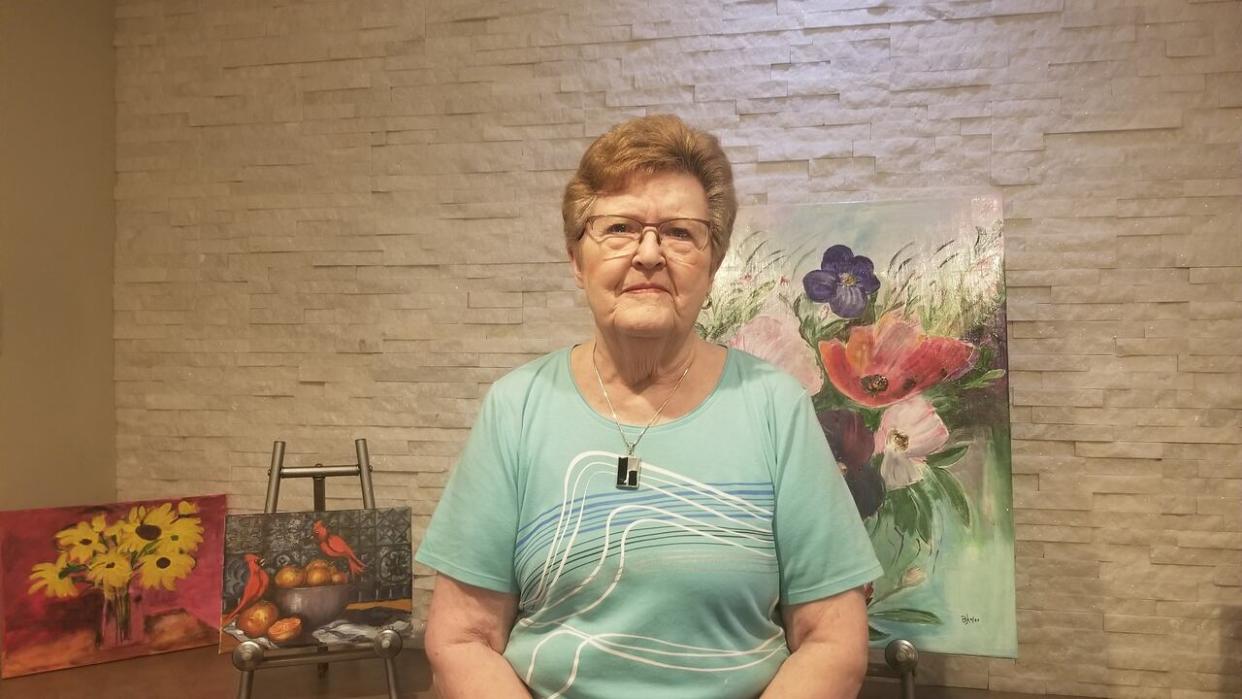Hundreds of Alberta seniors face losing doctor home visits as debate about physician fees heats up

Shirley Bremault was shocked when she found out the family doctor who visits her Calgary retirement community once a week is closing up shop at the end of August.
"Seniors need that care and now we don't have it," said Bremault. "We're very upset."
Bremault lives in United Active Living's Fish Creek location, which includes an independent living and assisted living facility.
According to Bremault, residents were told the fees doctors get paid by the province to conduct home visits had been cut by 20 per cent and her physician felt his practice was no longer financially viable.
"We have people with diabetes that need to be monitored," she said. "We have people with cognitive issues that need to be monitored. We have people in wheelchairs that have health issues. I don't know where they're going to get their care from now."
This situation is unfolding at a time when Alberta is experiencing a shortage of family doctors.
Bremault started a petition and wrote about her concerns to the province's health minister, the premier and others.
"There's a lot of people in limbo — a lot of people missing a lot of sleep — because we don't know what to do now."
Arianne Brady, vice-president of marketing and communications with United Active Living, said 60 residents at its Fish Creek and Garrison Green locations will be impacted.
"We're concerned about the overall impact on health long term as a result of not having such direct in-home access to a primary care provider," she said, adding many residents have limited mobility and are without access to vehicles.
"[It] may mean folks ... end up in emergency rooms, which is a much more expensive cost to our health-care system than some of that preventative care."
Hundreds impacted, doctor says
Bremault is one of hundreds of seniors in Calgary and Edmonton expected to lose their family physicians who are employed through Dr. Tanner Redel's mobile clinic over the next few months.
The Redel Clinic, where Bremault's doctor works, specializes in providing home visits for seniors. It covers over a dozen seniors facilities in both cities.
"Most of our doctors have already left or given their official notice to end their clinic by the end of the summer," he said.
"This is directly due to the recent pay cuts."

Dr. Tanner Redel, who runs a mobile clinic specializing in home visits for seniors, says half of his doctors are planning to quit by the end of August. (CBC)
Redel expects the number of physicians on his roster to be cut in half, from eight to four, by the end of summer, leaving about 600 Alberta seniors without a primary care provider.
"I worry about their [the patients'] overall health and their quality of life. I believe we have a huge impact on preventing emergency room visits and deterioration in their health," said Redel.
The amount doctors are paid for many care-home visits dropped by about 10 per cent in April of 2023 and another 10 per cent last month.
The way fees are structured, Alberta doctors have been paid more for home visits than for traditional office visits.
According to the Alberta Medical Association (AMA), the fee reductions — designed to align pay with other scenarios such as an in-office assessment — are being phased-in over a number of years and another is expected next year.
The change impacts home visits in assisted living facilities, seniors lodges and personal care homes. It does not impact doctors caring for people in long-term care facilities or those who live in their own homes.
The AMA said the fee reduction only applies to secondary patients. That means the first patient a doctor visits in the building in a single day is reimbursed at a higher rate and subsequent patient visits (in the same building on the same day) are paid out at the lower rate, which is now $61.69 per visit compared to $76.15 just over a year ago.
The pay for an initial home visit increased slightly this year to $88.86.
A limited, in-office assessment pays $39.49. Doctors can charge more for complex patients.
"These seniors need access to primary care and they need access to family physicians. It's just looking at where best to spend the money on these codes," said Dr. Paul Parks, president of the Alberta Medical Association.
"For the first call, it's appropriate to be paid at the higher rates. But then it wasn't deemed the best use of our resources to pay every other visit at that facility at that higher rate."
According to Parks, the AMA asked the province to use the savings to boost the fee for patients with higher needs and even more mobility issues in long-term care facilities. And those fees were increased.

Dr. Paul Parks is president of the Alberta Medical Association (CBC)
Redel disagrees with the cuts, noting his average patient is 88 years old and has a number of medical conditions.
As a result, appointments for these patients take much longer and doctors see fewer patients on home visits, he said. And he's calling for the fee reduction to be reversed.
"Before the pay cuts there was at least fair pay for seeing seniors in their homes versus what we would have gotten for working in a clinic and putting through large numbers of patients."
Redel said his clinic likely won't survive another reduction next year.
Minister willing to revisit
Health Minister Adriana LaGrange said the fee reduction was negotiated through an annual process with the Alberta Medical Association.
"There's negotiations that happen on an ongoing basis ... and I'm happy to have another look at that," she said during a news conference on Thursday.
"If it's not working for physicians then we definitely need to look at it. But, again, this was a negotiated rate with the Alberta Medical Association."
A statement provided by LaGrange's office said, in part, that addressing physician shortages and staffing problems are a priority.
The province said it aims to make Alberta an attractive place for doctors to work, noting its working with the AMA to develop a new family physician compensation model.
"When it's fully implemented, we expect it will make Alberta a national leader in recruiting and retaining primary care physicians."
Meanwhile, Parks said seniors care — which is inherently more complex — needs to be addressed as those details are worked out.
"We don't want barriers or impediments to our seniors getting access to care," he said.


